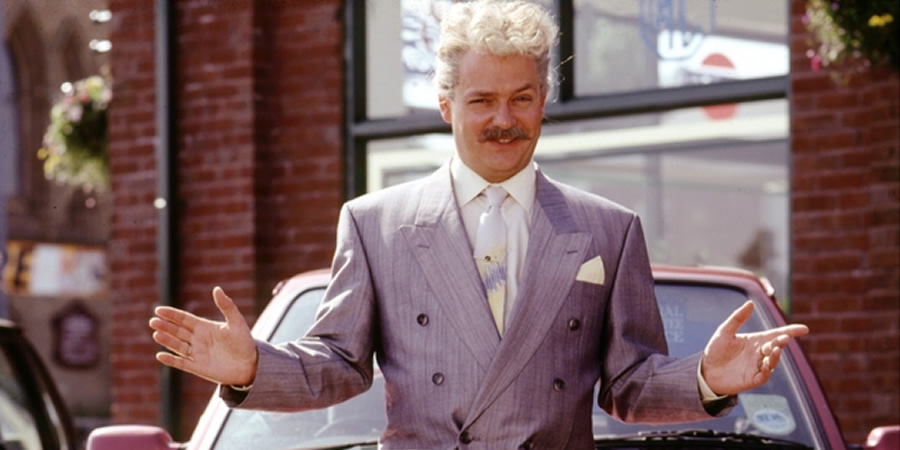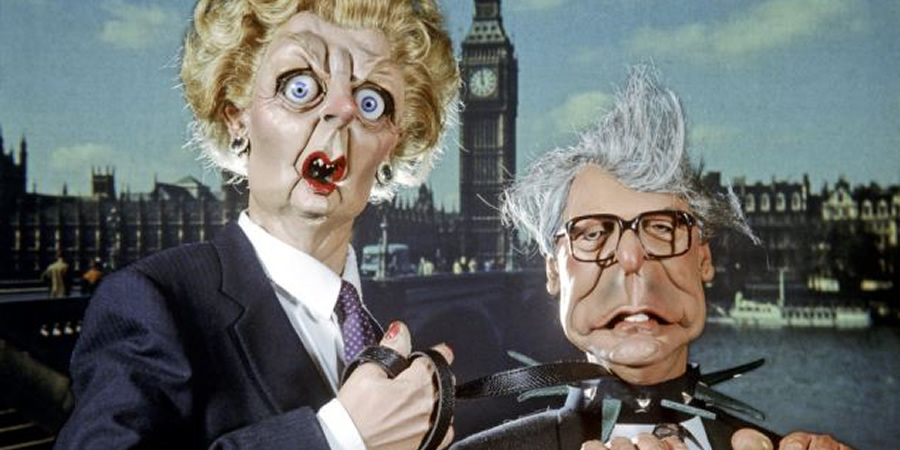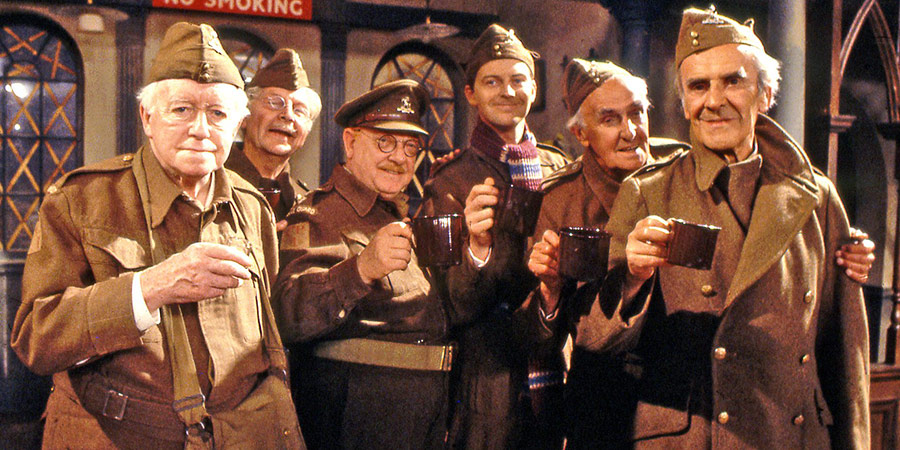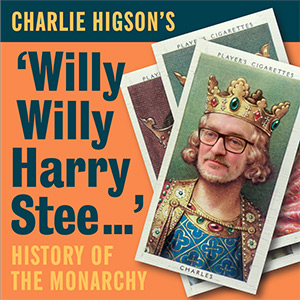Members Ask... Charlie Higson, part 2

Charlie Higson has enjoyed a stellar career as a performer, script writer, script editor, and novelist. He is currently presenting Willy Willy Harry Stee..., a podcast series in which he gives his personal take on the story of England's monarchy. Following on from Part 1, here is the second and final instalment of his interview with us.
Any tips for someone who wants to make comedy writing a full-time career?
Don't do it! I don't need the competition. Seriously, though, I started my comedy career nearly 40 years ago, now. I'm the last person you should be asking for advice. The world of TV was very different in the late 80s and on into the 90s. There were established routes into writing comedy, particularly through a sort of unofficial BBC training scheme - they had several long-running comedy shows on Radio 4 that always needed fresh writers. Shows like WeekEnding and The News Huddlines. That's the route Harry came up through. Paul & I just lucked in as Harry's mates. We never served an apprenticeship. We somehow just landed right in it, quite unexpectedly, and hit it hard straight off the bat. So, really, it's impossible for me to give anyone any useful tips, except to say that these days there are so many more outlets and ways of honing your skills and showing what you can do to the world. You can make film things cheaply on your phone and stick it online.
If you're a writer - find some other writers to work with. Find some funny performers. Work together. Pretty much all the comedy I've ever written has been with my writing partner, Paul Whitehouse. We both bring something to the table that the other can't and we both make each other laugh and that's how we write.
Don't try and go it alone - find like-minded people. It doesn't matter where you live. The Internet is universal. I'm not sure it would really help living in London, all your energies would go on trying to pay your rent and eat and get from one day to the next. I suppose you'd probably have access to more comedy clubs and whatever - but that's not a route that Paul and I ever took. Harry did. He performed character comedy which got him the gig on Spitting Image.

Honestly, I struggle to get anything made these days myself. I can't just walk into the BBC and say "I'd like to make a comedy show, can you give me some money?" It's complicated. I do believe, though, that if someone is genuinely funny and creative they will always have a good chance of success.
It's interesting that this question is always asked - this idea of "breaking in". As if there's a huge castle that is trying to keep comedy out, and everybody inside knows each other and were taught some kind of secret handshake to get them past the gates.
Actually, in my experience, comedy commissioners are always desperate for new voices and new work and funny stuff coming in. So, if you're work is funny, you will get in. But maybe start local, write local, see if you can make people laugh and build on that.
If, for instance, someone lives in Wales, such as myself, what would you consider the three best options are for breaking into the industry, apart from writing an incredible script, of course?
If you could break comedy down into 3 three quick fixes for breaking into the industry, half the people in Britain would be on TV.
How did you get your first agent?
It was on the back of Paul and I writing for Friday Night Live with Harry. Stavros was hugely popular and Loadsamoney was an instant success. We immediately started to get commissions to write other things, and people treated us as if we were established comedy writers. We soon started to work with Harry putting together his first sketch show and it became obvious that we needed an agent to look after us and help in our dealings with Enfield. Because we'd already had some success it wasn't difficult. It's very easy to find out who the agents are that look after comedians and comedy writers.
Do you agree with some that comedy is becoming ever more a second-class citizen as a genre, across all media, in lieu to drama? If so, do you think this is a problem and what would you do to arrest the change? Can the sketch show be revived?
I do feel that drama has taken over somewhat. But it always was considered a more respectable and important genre than comedy. Falsely in my opinion. Paul and I and Harry were lucky enough to be making comedy in the 90s which was a golden age because there were several executives at the BBC who loved comedy and entertainment and thought it was of paramount importance - people like David Liddiment, Paul Jackson, Jon Plowman, Geoffrey Perkins, and Michael Jackson (who was controller at BBC Two). Because the BBC was making so much good comedy, it challenged Channel 4 to compete. So, there was a good creative competition going on between the two broadcasters, which led to many great comedy shows - Alan Partridge, Vic and Bob, Blackadder, Chris Morris's stuff, Father Ted, Spaced, Red Dwarf, The Royle Family... Unfortunately, when Michael Jackson left BBC Two it took a shift away from comedy towards lifestyle. I think some people felt it had been a bit too male - too much comedy, music, arts and documentaries. Now we had cooking, decorating, makeover shows, gardening, whatever.
Don't get me wrong - there have been some fabulous comedy shows made since the 90s - The IT Crowd, Peep Show, The Office, Detectorists, Derry Girls, Inside No 9, Stath Lets Flats, This Country, The Inbetweeners, Black Books, Friday Night Dinner, Green Wing, House Of Fools, People Just Do Nothing, Toast Of London... but I feel that we've slightly come to the end of a cycle and I'm just hoping there's going to be some new people coming along with some great new shows. Even Ghosts is coming to the end of its run.
The world of TV comedy is also much more fragmented. Funny people very quickly get snapped up by the likes of Netflix, but comedy thrives when it's a communal thing. Think of the enormous success of Only Fools and Horses. It's almost impossible to replicate that now because you don't get everybody watching the same thing at the same time.
Also, traditional sketch shows and sitcoms are quite expensive to make when compared to the comedy panel shows. Comedy panel shows are very funny and very popular and they're a great way of using stand-ups on TV, but I think the BBC has slightly lost the confidence in (and the money for) making comedy.

I don't know how to remedy this. Everybody wants to write drama now. And much comedy is in the form of comedy drama. But when you look at the most popular comedies of all time, they've not been comedy dramas. Leaving aside the ones I've already listed, there's Dad's Army, Porridge, Monty Python, Not The Nine O'Clock News... I think, though, that it would only take one really good new sketch show to change all that. On the back of the success of Harry Enfield's Television Programme and then The Fast Show there was a blossoming of sketch shows in the 90s - from Goodness Gracious Me to The League Of Gentlemen, via Smack The Pony, Absolutely and The Real McCoy. This continued on into the new millennium with the likes of Catherine Tate and Little Britain. But lately, whilst there have been some good sketch shows, there have been none that have really broken through. And they've tended to be a little underfunded.
How have you found the move into podcasts?
I got interested in the history of the British monarchy during lockdown - this insane family saga - and when Queen Elizabeth died and Charles the third was coming up for his coronation, I thought it would be really interesting to look back at how he'd got there. I learnt a rhyme at school in the 60s - 'Willie, Willie Harry, Stee, Harry, Dick, John, Harry three (etc.) It's a way of remembering all the British monarchs from William I up to Elizabeth II. So, based on that, I thought it would be fun to do an episode every week of all the monarchs in chronological order. What I didn't take on board was the huge amount of research I'm having to do each week, and the fact that ultimately, I'm dealing with 1000 years of British history. But I must say I'm learning a huge amount and my listeners seem to be enjoying learning stuff as well. It's a way of joining the dots and making sense of our history. I'm not coming at it from either a republican or a royalist standpoint I just think it's interesting and tells an extraordinary story. I've been really enjoying making the shows. Basically, I talk for half an hour and then have an actual historian on for about half an hour and I've had some fabulous guests. There seems to be a huge hunger for history at the moment in this country. We mustn't let the reactionary right own the story.

Charlie Higson's current project is Willy Willy Harry Stee..., a podcast series in which he gives his personal take on the story of England's kings and queens. The schooltime rhyme, which lists every English monarch since William the Conqueror, will be familiar to many educated in the UK, but beyond their names, who were Willy, Willy, Harry, Stee and the rest of their regal cohort? Charlie attempts to answer this question, and many more, with the help of historical experts.
Willy Willy Harry Stee... is available on podcast apps including Acast and Apple
This article is provided for free as part of BCG Pro.
Subscribe now for exclusive features, insight, learning materials, opportunities and other tools for the British comedy industry.

